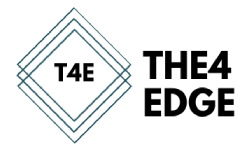Accurate property valuation is crucial when buying, selling, or refinancing a home. It objectively assesses your property’s worth, ensuring fair negotiations and financial decisions. However, inevitable common mistakes can lead to inaccurate valuations, impacting the outcome significantly. To make the most of your property valuation in Sydney, avoiding these pitfalls and ensuring the process is carried out effectively is essential.
Failing to Disclose Renovations and Upgrades
One of the most frequent mistakes is not informing the valuer about recent renovations or upgrades. These changes often add significant value to a property, whether it’s a kitchen remodel, a new deck, or modernised bathrooms. If these improvements aren’t disclosed, they may go unnoticed, leading to a lower property valuation in Sydney. Providing receipts, photos, and descriptions of the upgrades ensures that the valuer recognises the true value added to your property.
Renovations that enhance functionality or energy efficiency, such as solar panels or insulation, are particularly important to highlight. In competitive markets like Sydney, where property values are influenced by lifestyle trends, demonstrating your home’s modern features can make a substantial difference.
Neglecting Repairs and Maintenance
Another common mistake is failing to address visible wear and tear before the valuation. Factors such as peeling paint, broken fixtures, or unkempt gardens can give the impression that the property is poorly maintained, leading to a reduced property valuation in Sydney. Simple repairs and tidying up can go a long way in presenting your home in its best condition.
Even minor issues, such as leaky taps or cracked tiles, can leave a negative impression. Investing in small fixes before a valuation can boost your property’s perceived value and avoid unnecessary deductions in its assessed worth.
Misunderstanding Market Trends
Property owners often misjudge the impact of local market trends on their valuation. Overestimating or underestimating a property’s worth based on outdated or irrelevant market data is a common error. Property valuation in Sydney is heavily influenced by market conditions, including supply and demand, interest rates, and comparable sales in the area.
To avoid this mistake, research current market trends and understand how they apply to your property. Consulting with real estate professionals or using online tools to track recent sales can provide valuable insights into how your property aligns with the market landscape.
Overpersonalising the Property
While customisations such as bold paint colours, unique décor, or extravagant landscaping may suit your tastes, they may not align with broader buyer preferences. Overpersonalising a property can limit its appeal and affect the valuer’s perception of its market value. When preparing for a property valuation in Sydney, it’s best to focus on features that have universal appeal.
Neutralising the property by opting for standard finishes and neutral colours can increase its attractiveness. This allows the valuer to focus on the property’s structural and functional merits rather than subjective design choices.
Providing Inaccurate or Incomplete Documentation
Documentation plays a critical role in ensuring an accurate property valuation in Sydney. Missing or incorrect information regarding land titles, property boundaries, or zoning regulations can lead to discrepancies in the valuation process. Additionally, not disclosing relevant financial details, such as existing liens or mortgages, can cause complications.
To streamline the process, gather all necessary paperwork in advance and ensure it is complete and up to date. Providing clear and accurate information helps the valuer make an informed assessment and reduces the risk of errors.
Overlooking Comparable Properties
Many property owners neglect to research comparable properties in their area. Knowing what similar homes have recently sold for can give you a realistic expectation of your property’s value. Without this context, it’s easy to have unrealistic assumptions that don’t align with the current market.
In Sydney, the local property market varies greatly depending on location, property type, and buyer demographics. By reviewing nearby sales of properties similar to yours, you can gain a better understanding of where your property stands and support your valuation process.
Relying Solely on Automated Valuation Tools
Online valuation tools are convenient but should not replace a professional assessment. These tools often use algorithms based on limited data, which may not account for unique features or market conditions. While they can provide a general estimate, relying solely on them for property valuation in Sydney can lead to inaccuracies.
Hiring a licensed property valuer ensures that all relevant factors, including market trends, property conditions, and location-specific influences, are considered. A professional valuation provides a detailed and reliable assessment that is essential for significant financial decisions.
Conclusion
Achieving an accurate property valuation in Sydney requires careful preparation and attention to detail. By avoiding common mistakes like neglecting repairs, misunderstanding market trends, and failing to disclose upgrades, property owners can maximise the value of their assets. Providing complete documentation, understanding the local market, and consulting professionals can further ensure a fair and accurate valuation.
A well-executed property valuation not only reflects the true worth of your home but also positions you for successful transactions in Sydney’s competitive real estate market. Taking the time to prepare and avoid pitfalls can make all the difference in achieving your property goals.







